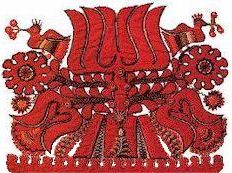|
Brief information |
|
| Reviews |
|
| Photos | |
|
Section of Culture The Section of Culture had 130 to 140 participants at its morning
session and 80 to 100 participants at its afternoon session. As
expected, it was the largest section of the World Congress. Thirty-two
speeches and reports were presented, three of them by guests speakers.
Twenty speakers participated in the subsequent discussions, some
of them taking the floor more than once.
Ivan Vasilyevitch Tarakanov
1. Every people has the right to preserve itself, its language, religion and culture. To effectuate these rights, every country must establish detailed legal, moral, material and organisational guarantees. 2. To ensure that the native languages of indigenous peoples endure and develop, the importance of these languages must be recognised and it must be secured that they are practiced in the family, among both rural and urban population (including intellecuals), in the educational process, in all spheres of national culture, and as official languages used by the mass media and the administration. 3. If some peoples do not enjoy these rights, the Section finds it necessary:
4. To promote the preservation of cultural heritage and the development of modern culture based on tradition. 5. To promote the preservation of traditional culture by making use of modern technology (audio and video recording, filming, etc.) and by establishing databanks. 6. To ensure the access for researchers to the archives containing documents on their peoples. 7. To promote the inclusion of elements of traditional culture into modern professional and amateur culture. 8. To widely propagandize the genuine cultural heritage. 9. To promote historical, ethno-cultural, ethno-psychological, ethno-pedagogical, ethno-sociological etc. researches in Finno-Ugric peoples. To prepare publication of comprehensive works on history and culture of these peoples. 10. To expand co-operation in the areas of education, culture and science (including translation between Finno-Ugric languages, regular publication of information materials, organisation of joint conferences, seminars, exhibitions and cultural events). 11. To promote development of cultural contacts of Finno-Ugrians with other peoples. To make the achievements of modern culture accessible to all Finno-Ugric peoples and to disseminate the achievements of Finno-Ugric cultures all over the world. 12. The World Congress of Finno-Ugric Peoples should apply to the governments of Estonia, Finland, Hungary and the Russian Federation with the request to jointly take co-ordinated steps to attain that the research, preservation and development of the cultures of Finno-Ugric peoples are covered in the programmes of the UNESCO, the Council of Europe and other international and intergovernmental organisations. Source: 2nd World Congress of Finno-Ugric Peoples. |
